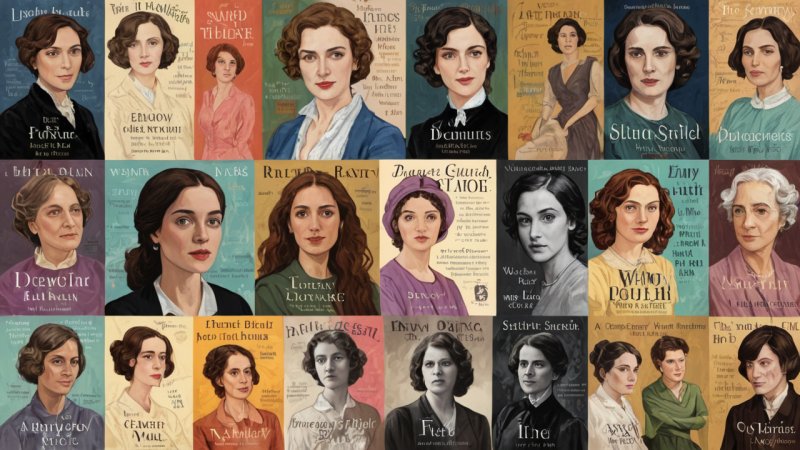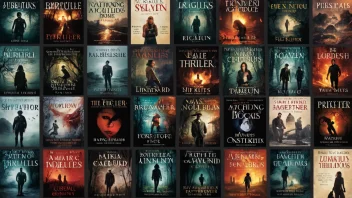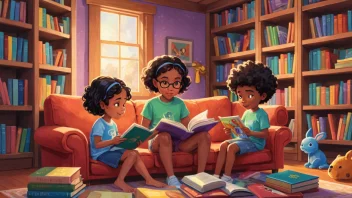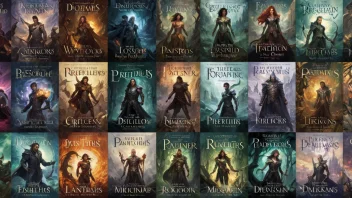The feminist movement, with its rich tapestry of advocacy for women's rights and gender equality, has been profoundly influenced by classic literature. From the early works of the 19th century to the foundational texts of the 20th century, literature has not only reflected societal norms but also challenged and reshaped them. This article delves into the intricate relationship between classic literature and feminism, exploring how key texts have inspired generations of women to question their roles in society and seek empowerment. It will examine notable authors, pivotal works, and the thematic undercurrents that underscore the feminist discourse.
Understanding Feminism and Its Historical Context
Before exploring the impact of classic literature on feminism, it is essential to understand the historical context of the feminist movement. Feminism, in its various waves, has evolved significantly over the decades. The first wave, primarily in the late 19th and early 20th centuries, focused on legal issues and inequalities, particularly women's suffrage. The second wave, emerging in the 1960s and 70s, addressed cultural inequalities and the personal as political, while the third wave embraced individualism and diversity.
Classic Literature: A Mirror and a Catalyst
Classic literature serves as both a mirror to society and a catalyst for change. Many authors of classic works utilized their voices to critique societal norms surrounding gender and to advocate for women's rights. This dual role has made classic literature a vital part of the feminist movement.
Influential Classic Authors
Some of the most prominent authors whose works have significantly impacted feminist thought include:
- Jane Austen: Her novels, such as "Pride and Prejudice" and "Emma," explore themes of marriage, class, and autonomy, subtly critiquing the limited roles available to women in her time.
- Virginia Woolf: In works like "A Room of One's Own," Woolf argues for women's intellectual freedom and the necessity of financial independence, becoming a cornerstone of feminist literary criticism.
- Charlotte Perkins Gilman: Best known for "The Yellow Wallpaper," Gilman’s exploration of mental illness and its ties to the oppression of women has been lauded for its early feminist critique.
- Mary Wollstonecraft: Her seminal text, "A Vindication of the Rights of Woman," laid the groundwork for feminist philosophy by arguing for women's education and rationality.
Key Themes in Classic Feminist Literature
Several recurring themes in classic literature underscore the feminist movement:
- Autonomy and Identity: Many classic texts focus on the struggle for self-identity and autonomy in a patriarchal society. Characters often grapple with societal expectations versus personal desires.
- Marriage and Relationships: The institution of marriage is frequently examined, revealing the constraints it places on women and questioning the traditional roles assigned to them.
- Education and Empowerment: Access to education emerges as a critical theme, with many female protagonists seeking knowledge as a means of liberation.
- Social Critique: Classic literature often critiques societal norms, using irony and satire to highlight the absurdities of gender roles.
The Lasting Legacy of Classic Literature on Feminism
The influence of classic literature on the feminist movement extends beyond the texts themselves. These works have inspired feminist theorists, activists, and writers, leading to a rich dialogue about gender and literature.
Classic Literature in Modern Feminist Discourse
Today, classic literature is often referenced in feminist discourse, showcasing its relevance in contemporary discussions. Themes from these texts resonate with modern issues, such as workplace inequality, reproductive rights, and intersectionality. Feminist literary criticism has emerged as a discipline that analyzes classic works through a feminist lens, revealing the complexities of gender representation.
Adaptations and Reinterpretations
Classic literature continues to be adapted and reinterpreted, reflecting evolving feminist ideals. Modern retellings of classic stories, such as "Pride and Prejudice and Mistletoe" or "The Handmaid's Tale" series, highlight the timelessness of these narratives while addressing contemporary issues faced by women.
Conclusion
In conclusion, classic literature has played an instrumental role in shaping the feminist movement. From critiquing societal norms to advocating for women's rights, these texts have provided a foundation for feminist thought and action. As society continues to evolve, the insights gleaned from classic literature remain crucial in understanding the ongoing struggle for gender equality. The legacy of these works encourages readers to reflect on their own roles in the fight for justice and inspires future generations to continue the pursuit of empowerment through literature.






